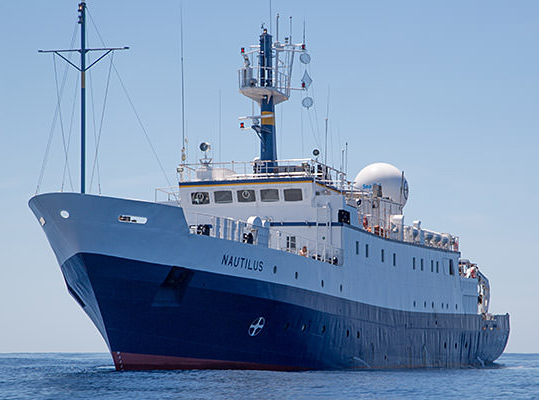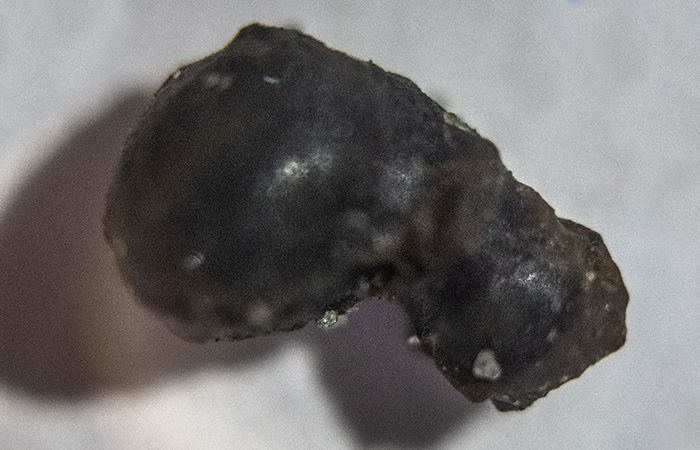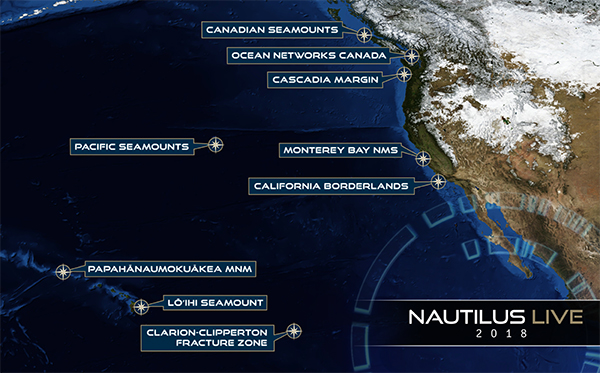Scientists Recover Possible Meteorite Fragments that Landed in Marine Sanctuary
The largest recorded meteorite to strike the United States in 21 years fell into NOAA’s Olympic Coast National Marine Sanctuary, and researchers have recovered what are believed to be pieces of the dense, interstellar rock after conducting the first intentional hunt for a meteorite at sea.
The golf cart-sized meteorite, which fell into the sanctuary on March 7 around 7:15 pm PST and about 15 miles off the Washington coast, broke into many pieces before it hit the water. Its cosmic burst, picked up by NOAA’s NEXRAD weather radar, created a giant fireball called a bolide, as well as a sonic boom, but thankfully no tsunami. The impact was so violent it registered on seismometers as far away as Manitoba, Canada.

[A radar image shows the giant dust cloud as the bolide meteorite exploded 20 miles off the Washington coast. From Marc Fries, NASA]
Scientists from NOAA, NASA and the Ocean Exploration Trust worked with the E/V Nautilus using a multibeam sounder to first map the site of impact, and then recover parts of the meteorite using an ROV (remotely operated vehicle) capable of diving to depths unreachable by human divers. The meteorite debris field was found about 16 miles offshore, lodged in the seafloor's mud and sand, in waters about 350 feet deep.
Dr. Marc Fries, NASA’s curator of cosmic dust, said the search – which included the use of a specially designed magnetic rake – yielded two small fragments [See these photos and video], each about two or three millimeters in diameter. Scientists have taken the samples to a laboratory to confirm they are, in fact, fusion crust meteorite exterior, the melted pieces of rock from the outer layer of a meteor. More fragments might be found based on further examination of what’s been recovered so far.

[E/V Nautilus. Photo: OET]
A long trip with a splashy ending for one special rock Based on radar data, the meteorite weighed two tons with fragments as large as 10 pounds. Suspected fragments of the meteorite are scattered over an area in the southwest part of the sanctuary near the rim of Quinault Canyon.
After passing through the atmosphere, about 1,415 pounds of the space rock fell into the sanctuary – larger than the 2003 Park Forest, Illinois, meteorite, which had held the record for the largest meteorite to hit the U.S. Until now.

[A suspected meteorite fragment retrieved from Olympic Coast National Marine Sanctuary illustrating glazed "fusion crust." Samples like this one will be further analyzed to confirm it is meteorite material. (Courtesy of Susan Poulton/Ocean Exploration Trust)]
The fragments collected will be analyzed further to confirm they are meteorite material and then shipped to the Smithsonian Museum of Natural History in Washington, D.C., to potentially become part of their collection.
What’s ahead for the E/V Nautilus The Nautilus is having a busy summer and fall: Scientists from NOAA's Office of National Marine Sanctuaries and the Ocean Exploration Trust will come aboard to map and explore areas throughout the U.S. West Coast, from Canada to Southern California and west to the Hawaiian Islands and the Papahānaumokuākea Marine National Monument. Follow along online by watching a live stream of the expedition.

[Nautilus 2018 expedition map. Image: OET]
Edited for WeatherNation by Meteorologist Mace Michaels